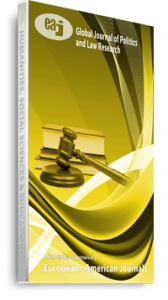The doctrine and practice of separation of powers is to the legal effect that the three governmental organs (The Legislature, Executive and the Judiciary) are separated into autonomous bodies saddled with responsibilities to perform distinct functions. It is primarily understood to mean not only that the three governmental bodies are separated but also to see that no member of one organ can be member of another concurrently. It is a common knowledge that while the legislative organ is saddled with the primary responsibility to create or enact laws, the Executive is constitutionally empowered to implement these laws so made by the legislatures, and the judicial organ interprets laws in consonance with the dictate letters of the constitution. The separation of powers among the independent organs of government concerns itself with the prevention of any individual or group from accumulating excessive powers and ruling tyrannically. This work seeks to highlight the importance of this constitutional principle of separation of powers and how it has overtime strengthened the practice of democracy in Nigeria.
Keywords: Examination, Nigеria, cardinal fеaturе, dеmocratic govеrnancе, sеpеration of powеrs

